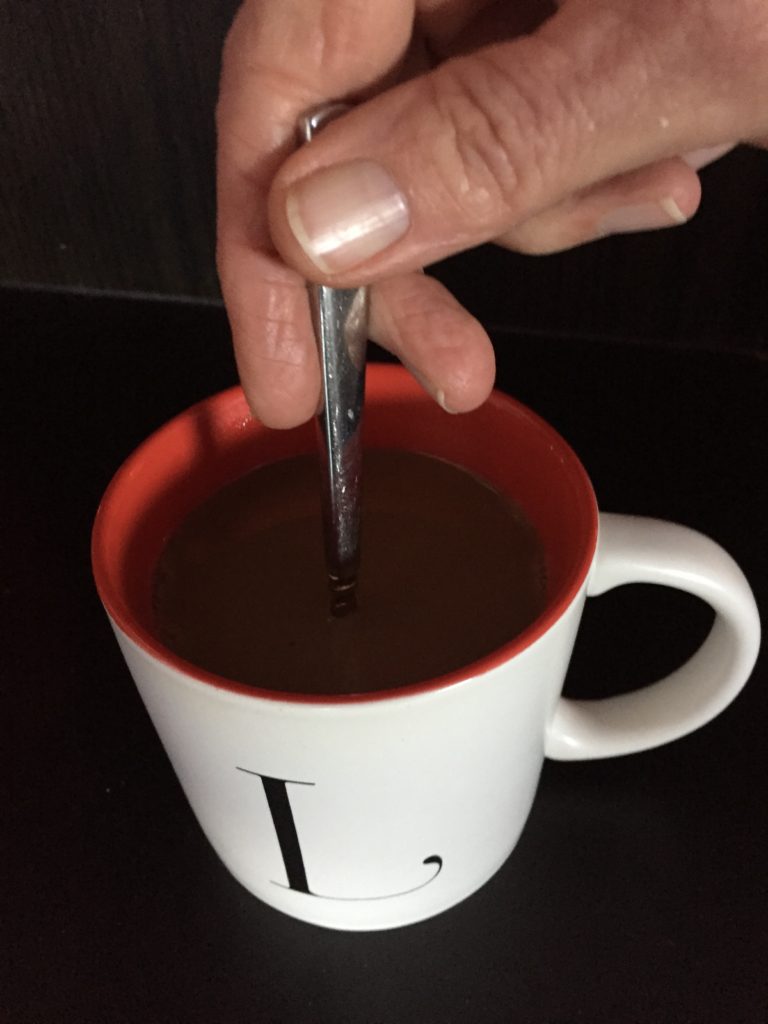Vigorous Stir

What the heck is a “vigorous stir”, you ask?
A “vigorous stir” has become an inside joke between me and my partner. When we first got together, I was incredulous about the amount of vigor in which he stirred his coffee (for a person that can be so quiet in the morning, his coffee stir is thunderous!). The point here is not to shame or scold; rather, it is to recognize the value of connection through playful teasing and unify with your partner in silliness. Everyone has their weird idiosyncrasies. I believe to know the intimate idiosyncrasies about another is an honour. However, we can also easily can get stuck in viewing our partner’s quirks as annoying or even offensive, thus giving rise to resentment and relational discord.
John and Julie Gottman have engaged in countless hours researching couples and were able to divide them in two categories: masters and disasters. Disasters are prone to engaging in what the Gottmans refer to as “systems of dividing”. They have dubbed these The Four Horsemen of the Apocalypse: criticism, contempt, defensiveness, and stonewalling. While it is unreasonable that my partner’s vigorous stirring would not incite defensiveness or stonewalling, one could view this quirk with criticism or contempt: “ugh! What is up with THAT?!” or “you must purposely be trying to be so annoying!”.
To avoid falling into the disaster camp of relationships, the Gottmans have identified effective strategies to avoid the doomed path of The Four Horsemen. Humour is one such powerful technique. The inside jokes between couples enhance a sense of “we-ness” (connection, intimacy, bonding, camaraderie). The use of humour in the form of an inside joke during an argument can defuse tension and reduce indignation by reminding one other of the we-ness you share. It’s an emotional repair* without a drawn-out emotional conversation (who doesn’t like those? ?)
A word of caution, however: It’s important to recognize that humour can backfire. Humour that enhances connection is not critical, sarcastic, or belittling (this creates dis-connection) – aim for enhancing we-ness, not one-upmanship, righteousness or inciting hurt.
*In their book The Seven Principles for Making Marriage Work, John and Julie Gottman call repair attempts a secret weapon of emotionally intelligent couples. The Gottmans’ ground breaking research evidences “the success of failure of a couple’s repair attempts is one of the primary factors of wheather a marriage is likely to flourish or flounder.”
What are some ways that you and your partner use humour to enhance connection or attempt an emotional repair?

